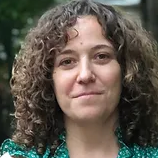Creative Survival
( Listen to this page read aloud)
 Creative Survival is a mental health approach that connects creative expression and somatic mindfulness with community connection.
Creative Survival is a mental health approach that connects creative expression and somatic mindfulness with community connection.
This approach helps people process trauma of oppression, climate, politics, etc. These groups also help you practice skills of connecting in community - which is a crucial need for our society right now. The pandemic really disrupted that for us, and that trauma has yet to be addressed by most people.
The trauma of social injustice, climate change, global politics, war, and colonialism impacts us in ways that individual therapy just cant reach sometimes. Creative Survival is my way of trying to help heal the ways society is broken, by supporting small groups of people at a time. These groups will support each other, and practice co-creating healing communities, so that you can take these skills into your friend circles, workplaces, and neighborhoods.
My dream is to help you navigate common relational patterns that tear groups apart like manipulation, competitiveness, or interpersonal policing. I also want to help you work with your nervous system so that you have more capacity for managing conflict, hearing grievances, and collaboration.
We'll draw inspiration and prompts from artists, writers, activists, and humanitarian practitioners around the world. Read more about it here.
I am available to come talk to your group about these themes. If you have an informal group that is trying learn how to do community work, and you have no funding, please reach out to me. I can talk with your group for free especially if you are serving margnialized populations or causes. I am also able to design workshops to fit your group or org.
Support Group
Share support about world events, humanitarian crises, climate grief, and divergent identities.
A mishmash of arts, philosophy, cultural exploration, somatics, nervous system, and peer support.
6 sessions, every other week. $60 per session, I accept insurance and offer limited sliding fee spots.
Register

Book Club
Created with ADHDers and other procrastinators in mind! We will start with some movement or mindfulness, then read for 30 minutes, discuss for 20 minutes, and speed journal for 5 - 10 at the end.
The theme is similar to the support group, but we are focusing on reading and discussion as opposed to additional activities. The reading materials will be in themes of liberation psychology, rebuilding community, connecting to nature, and using art/creativity to heal together. Coming Soon.
For Therapists
Neurodiversity affirming groups for clinicians who are interested in creative approaches that integrate community work with mental health.
A learning environment for colleagues exploring how our work intersects with our greater concerns for human rights, systemic issues, etc.
A place to process with art, somatics, and writing.
More
Quotes
"Trauma informed therapy is important, but Social Justice informed therapy is even more important. One cannot truly do fully trauma-informed therapy without understanding the trauma of social injusticies."

Dr. Maria Paredes
Psychotherapist
"When you cant remember what to do, and you cant remember what to say, and you cant remember what the deeper teachings are, when all else escapes you -- just remember this: Feed what needs feeding. Always make beauty. Be beautiful on the way to the answer. That is the answer. Bow to what gives you your life."

Martin Prechtel
Author of Rescuing The Light and Educator
"We are alone. We are connected and accompanied. These two truths return to me again
and again in my own processes of healing from trauma.
On the one hand, I am the only person who will ever know or experience my internal experience. I am alone in it. I am uniquely positioned to observe and appreciate it. I am
the person best qualified to care for myself. I am the person whose regard for my being
and my body is the most important. Recovering from a culture of social control that requires us to attune to the expectations and opinions of others, this relationship to self ispowerful to feel and appreciate.
On the other hand, no matter how abnormal, stigmatized and degraded we feel, we are not alone. We can hear our experiences echoed in the accounts of others. We can find
connection, even across differences. Where humans connections feel out of reach, we can
connect to plants, animals and celestial bodies. We are accompanied. We are not alone."

Dean Spade, from Intro text for the anthology Written on the Body: Letters from Trans and Non-Binary Survivors of Sexual Assault and Domestic Violence (ed. Lexie Bean)
Author of Mutual Aid and Professor at Seattle University School of Law


